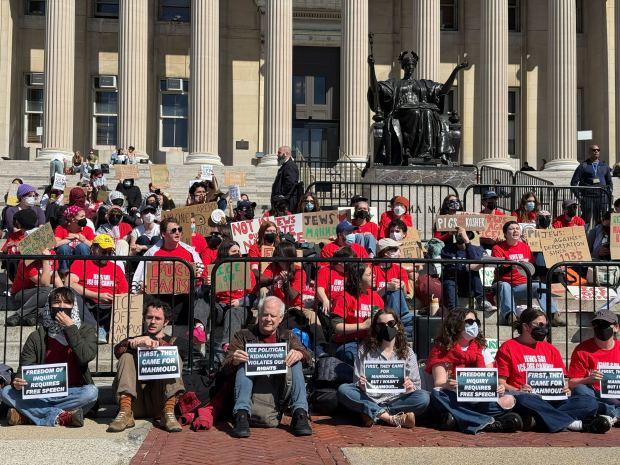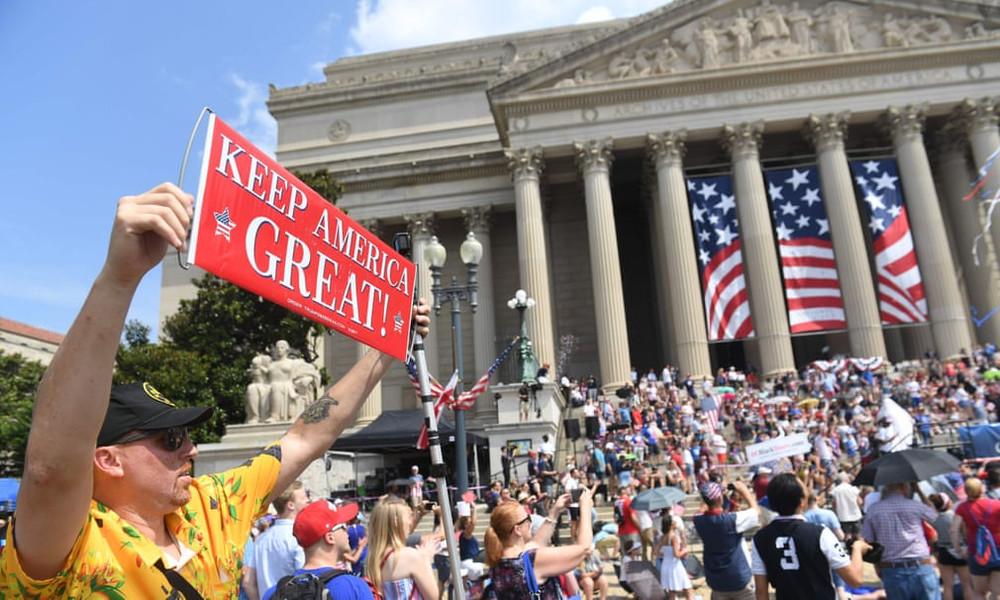In recent years, American universities have found themselves at the center of heated national debates, not only over free speech and academic freedom but also over the very values they uphold. A growing question that has sparked controversy is whether universities should lose federal funding for allowing protests that are perceived as anti-American. This issue has drawn intense reactions from lawmakers, students, faculty, and citizens alike, as it touches on the foundational principles of the United States—freedom of speech and expression—while raising concerns about national loyalty, public funding, and campus responsibility.

The debate intensified as student-led protests emerged across campuses, often in response to U.S. foreign policy, systemic racism, or perceived government overreach. While many of these demonstrations are peaceful and constitutionally protected, some have featured slogans, imagery, or rhetoric that critics describe as anti-American. These may include burning flags, denouncing the U.S. military, or calling for radical political change. For some observers, such expressions go beyond dissent and cross into territory that is offensive, inflammatory, or even dangerous. They argue that public institutions, which rely heavily on taxpayer funding, should not be allowed to serve as platforms for ideas that seemingly undermine the nation itself.
Proponents of revoking federal funding believe that universities have a duty to uphold certain standards and values. According to this perspective, permitting anti-American protests, particularly those that might incite violence or promote hatred, constitutes a betrayal of that duty. Some lawmakers have gone as far as to introduce legislation that would make federal funding contingent on universities’ compliance with patriotic norms or prohibitions against “anti-American” activity. Supporters of these measures argue that the government should not be financially supporting institutions that allow or encourage behavior perceived as unpatriotic or harmful to national unity.
On the other side, civil rights advocates, constitutional scholars, and many educators strongly oppose any attempt to penalize universities for the political expressions of students and faculty. They point to the First Amendment, which protects freedom of speech—including speech that is controversial, unpopular, or critical of the government. According to this view, withholding federal funds as punishment for allowing certain protests constitutes government censorship and threatens the very democracy those critics claim to defend.
Universities, by nature, are meant to be spaces where ideas—both mainstream and radical—can be debated openly. The idea of academic freedom has long been considered essential to the growth of knowledge and the development of informed citizens. Limiting this freedom by tying it to funding threatens to undermine the independence of higher education institutions and could have a chilling effect on free inquiry. Critics of defunding also warn that such actions could set a dangerous precedent: if today it is “anti-American” speech, tomorrow it could be criticism of any government policy, effectively silencing dissent in all its forms.
The practical implications of cutting off federal funding are also immense. Federal funds are not just used for administrative costs—they support research, scholarships, financial aid, and crucial programs that benefit millions of students, particularly those from disadvantaged backgrounds. Punishing an entire institution because of the actions of a small group of protesters could do irreparable harm to students who had no involvement in those demonstrations.
Moreover, defining what constitutes “anti-American” speech is itself highly subjective. In a diverse society with differing opinions on what patriotism means, using such a label as a basis for government action is fraught with legal and ethical risks. What one group sees as legitimate criticism, another may see as treasonous. In such a climate, it becomes all too easy for political leaders to use funding as a weapon to suppress opposing viewpoints.

Ultimately, the question of whether universities should lose federal funding for allowing anti-American protests boils down to a conflict between two core American values: patriotism and free speech. While national unity and respect for the country are important, they should not come at the cost of fundamental constitutional rights. The health of a democracy is not measured by its silence, but by its capacity to withstand dissent and allow all voices—however controversial—to be heard. In this light, preserving funding for universities, even when protests challenge national narratives, is not a weakness but a testament to the enduring strength of American democracy.






